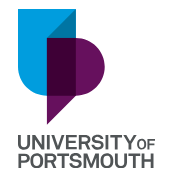About Early Childhood Studies With Psychology BA (hons) in University of Portsmouth
If you want to make a difference in the lives of young people and understand what makes them tick, you can combine the study of childhood and psychology on this BA (Hons) Early Childhood Studies with Psychology degree.
You’ll explore the theory and lives of children from birth to 8 years old, covering themes such as cover education, health and welfare. And you'll study psychology to build your understanding of children's individual and collective behaviour and how this affects their development.
At the end of the course you'll be set for a career in roles such as early years practitioner, play worker, youth worker, teacher and social worker.
Careers and opportunities
When you complete the course, you’ll be prepared to take on roles in education, social care and health-related areas. You could also continue your studies at postgraduate level.
What can you do with a Early Childhood Studies degree?
Previous students have gone on to work in:
- teaching
- healthcare
- social welfare
- the police force
- early years teaching and training
- nursery practice
- play work
- family support services
- early years management
- healthcare and health promotion
- social work
- the voluntary sector
- special educational and disability support
What jobs can you do with a Early Childhood Studies degree?
Specific roles that our graduates have gone on to include:
- training assessor
- teacher
- employability coordinator
- careers advisor
- schools liaison officer
After you leave the University, you can get help, advice and support for up to 5 years from our Careers and Employability service as you advance in your career.
Academic qualification equivalents
- If you have an average of 75% or above in the 12 Standard (State Board) examinations or 70% in the Central Board, we'll consider you for admission onto an undergraduate course such as a Bachelor's degree. You must have studied relevant subjects and achieved strong grades.
English language requirements (one of the below):
- IELTS: A minimum of IELTS band 6.0, with no component below 5.5.
- TOEFL iBT: For most of our Bachelor's degrees, you need a score of 79 with a minimum of:18 in Reading 17 in Listening 20 in Speaking 17 in Writing Some courses, especially those with a high level of discussion and writing, require higher scores. You can see course-specific details on the individual course pages.
- PTE: 54 points, with a minimum of 51 in each component.
University of Portsmouth Highlights
| Type of Institution |
Public |
| Campus Setting |
Urban |
| Endowment |
9.9 Lakhs GBP |
| Number of Campuses |
2 - Langstone Campus and University Quarter |
| Percentage of International Students |
26% |
| Total number of Professors |
1,126 academic and Research staff |
| Student Satisfaction Rate |
Secured 88% Student Satisfaction |
| Graduate Job Rate |
97.5% |
| International fee |
£11,250 per annum |
| Type of Academic Programs |
UG, PG, Ph.D., research and Pathway Courses |
| Mode of Program |
Full time |
| Average Graduate Salary |
£13,900 - £15,900 a year |
University of Portsmouth Average Tuition Fees And Other Expenses
| Expenses |
Estimated cost in pounds |
| Undergraduate Fee |
£13,900 – £15,900 approx |
| Postgraduate Fee |
£13,900 – £15,900 approx |
| Accommodation |
£5000 approx |
| Cost of living |
£7000 - £10,000 approx |
| Placement year fee |
£2400 |
